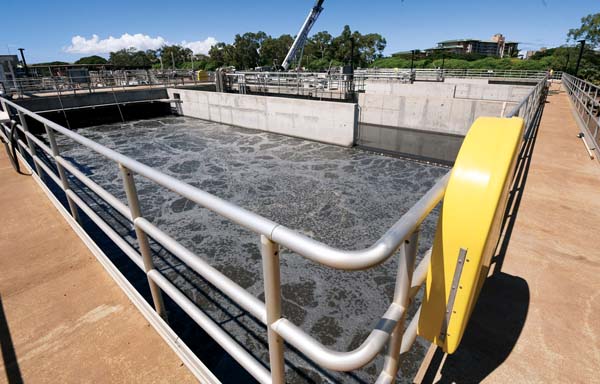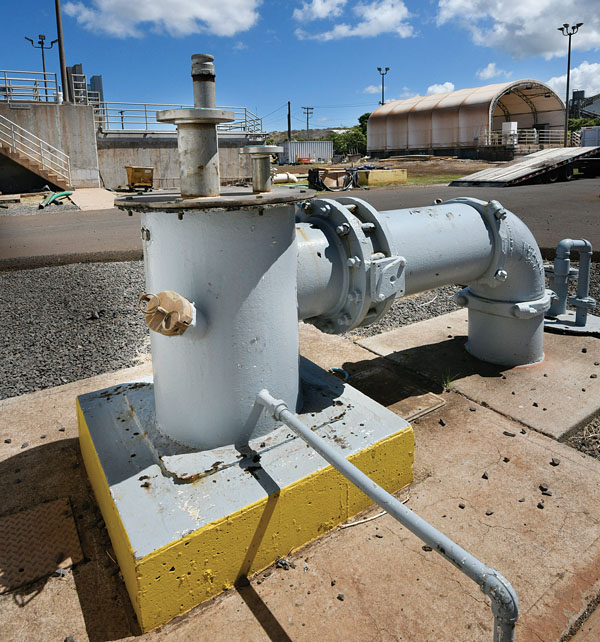The Maui News | July 16, 2021
By MELISSA TANJI, Staff Writer
Decision may bring drawn-out case to a close if county does not appeal
A U.S. District Court judge issued an order Thursday saying that Maui County “must obtain a permit under the Clean Water Act consistent with the analysis established by the Supreme Court” for the use of its injection wells in West Maui. The decision could bring the decadelong court case to an end if the county does not appeal. The Maui News / MATTHEW THAYER photo
A U.S. District Court judge has once again sided with Maui environmental groups in an exhaustive legal battle with Maui County over its use of injection wells in West Maui.
Judge Susan Oki Mollway of the District of Hawaii issued an order Thursday saying that Maui County “must obtain a permit under the Clean Water Act consistent with the analysis established by the Supreme Court.”
After ruling in April 2020 that injection wells fall under the Clean Water Act, the high court remanded the case back to the lower courts “to figure it out,” explained David Henkin, an attorney from Earthjustice who argued the case for the plaintiffs before the Supreme Court.
Hawaii Wildlife Fund, Sierra Club-Maui Group, Surfrider Foundation and West Maui Preservation Association filed a lawsuit in 2012 over the injection wells, saying that the effluent from the Lahaina Wastewater Reclamation Facility has been reaching the ocean and impacting coral reefs and sea life. The groups pointed to studies that used dyes to trace the flow, which showed more that half the discharge from two wells was entering the ocean in a narrow area.
In 2014, Mollway ruled against the county, which then appealed to the 9th Circuit Court of Appeals. The court agreed with Mollway in its ruling in 2018.

The Lahaina Wastewater Reclamation Facility is shown in 2019. The Maui News / MATTHEW THAYER photo
Despite pleas from the Maui County Council and community members, the county refused to settle the case and took it to the Supreme Court, which heard arguments in 2019 and issued its ruling in 2020.
The county had argued that the discharge of treated wastewater from injection wells does not require permits under the Clean Water Act because pollutants do not flow directly into the ocean but rather indirectly through groundwater. However, in a 6-3 vote, the Supreme Court said that the discharge of polluted water in the ground, rather than directly into nearby waterways, does not relieve an industry of complying with the Clean Water Act.
With the order Thursday, Henkin said court action over the issue could be over unless the county decides to appeal again.
“We are hopeful that the mayor will stop wasting taxpayer resources on courts and focus on what he says he wants to do,” Henkin said, noting the administration has said it is committed to reusing the Lahaina wastewater.
If that is truly the case, Henkin said, “then stop fighting in court and trying to gut the Clean Water Act and just focus on that task, which is frankly all our clients who are all Maui residents ever asked the county.”
Since 2008, the plaintiffs have tried to work with other county administrations on the issues. The groups did not want to file suit, but felt they had to in 2012, Henkin added.
Maui County Communications Director Brian Perry said late Thursday afternoon that the county is “disappointed” in the ruling “but prides itself on its environmental stewardship that began decades ago when its leaders made the decision to focus on water reclamation and reuse rather than ocean outfalls.”
He added that the Lahaina facility treats incoming wastewater to R1 quality, “the highest quality in the state.” The recycled water is used for irrigation, with the excess disposed of into deep wells, he added.
“A troubling aspect to this ruling is the potential impact to the county’s recycled water program,” Perry said. “The county will continue to analyze the impact of this ruling.”
Perry said that the county is grateful that the Supreme Court heard the case and issued the ruling so that “this important national law would be applied with uniformity.”
Mayor Michael Victorino said after the ruling last year that the high court’s action was a “step toward the clarity we have advocated for” and that the Supreme Court agreed with the county that the 9th Circuit ruling in 2018 “was too broad and could possibly affect millions of homeowners with septic systems.”
Perry said on Thursday that when the suit was initially filed in 2012, the county submitted an application for a National Pollutant Discharge Elimination System permit to the state Department of Health.
“That application remains pending, and the county will continue working closely with state regulators,” Perry added.
Department of Health spokeswoman Janice Okubo said in an email Thursday afternoon that the department “will be reviewing and evaluating the court decision and determining the next steps in working with the county.”
If there is no appeal, the next steps would be up to the county and the Health Department to work on a permit, said Henkin, who also took aim at the DOH for not taking more action regarding the permit in past years.
While Thursday’s order does not address remedies for the county’s Clean Water Act violation, Mollway noted that a settlement agreement was worked out years ago.
Henkin said that if the county lost, it agreed it would pay a $100,000 penalty to the federal treasury and spend another $2.5 million on projects designed to divert treated wastewater from its four Lahaina injection wells and reuse that water to meet existing water demands in West Maui.
* Melissa Tanji can be reached at mtanji@mauinews.com.
Original article URL:
https://www.mauinews.com/news/local-news/2021/07/judge-sides-with-plaintiffs-again-in-west-maui-injection-wells-case/

